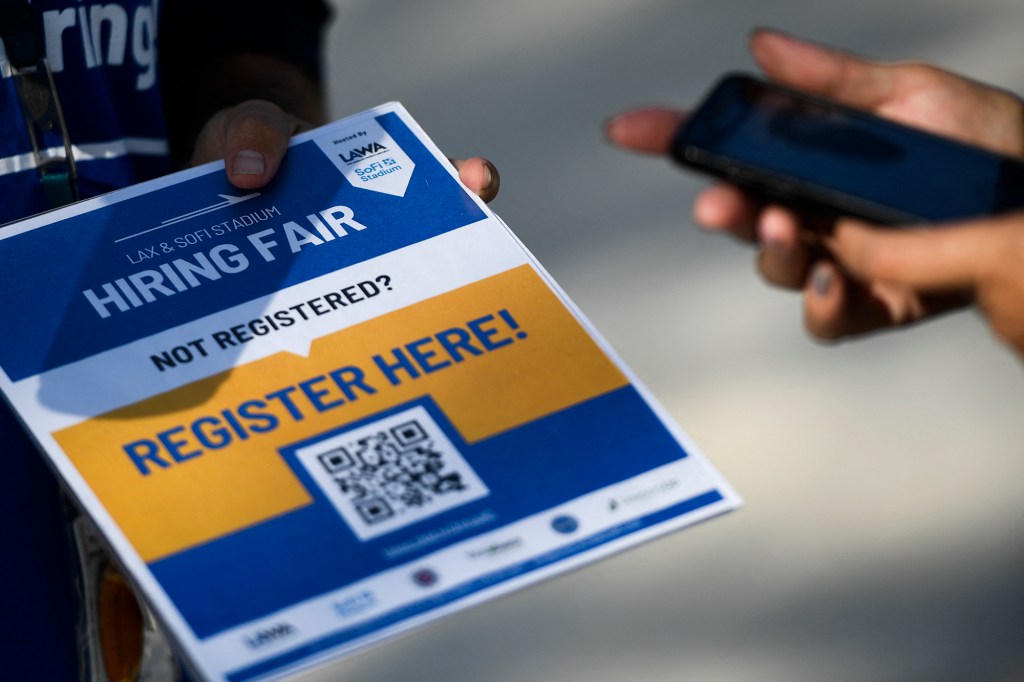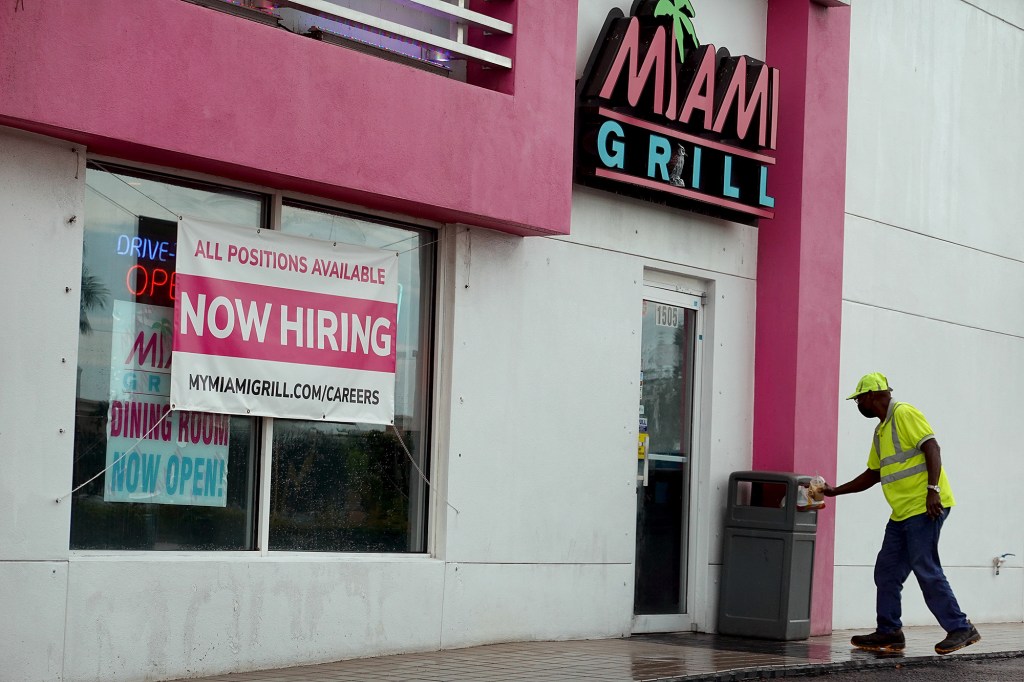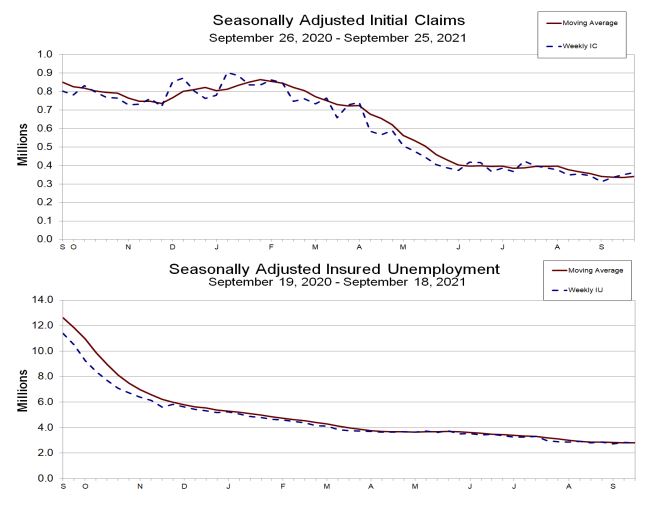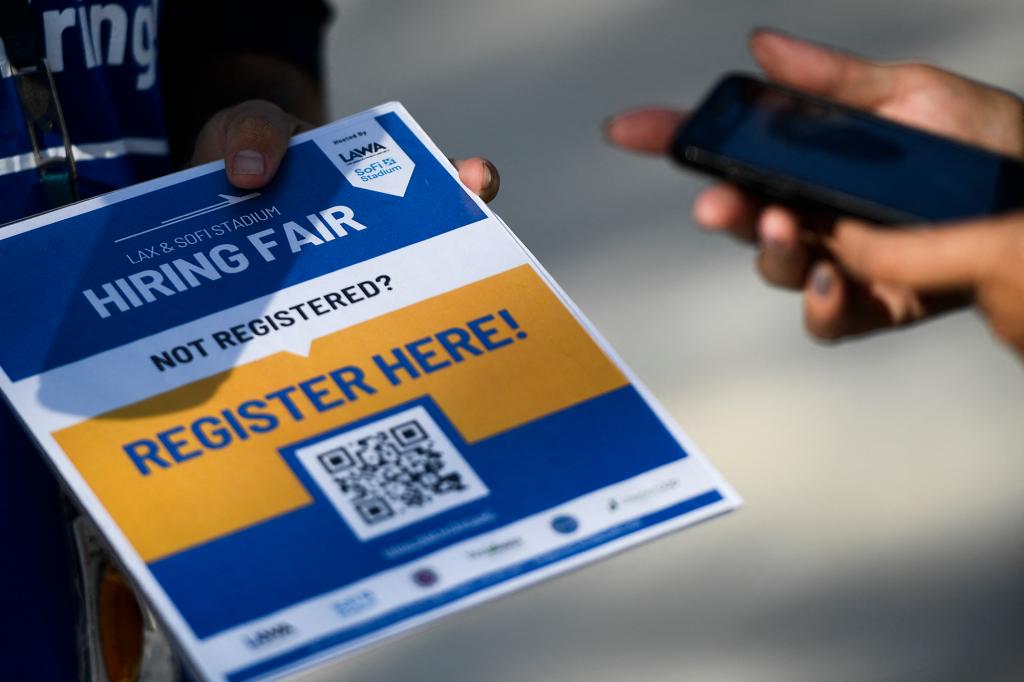New jobless claims unexpectedly rise again even as COVID cases fall
The number of Americans newly seeking jobless benefits unexpectedly rose last week even as the summer surge in COVID-19 cases driven by the Delta variant appears to have peaked and has begun to decline, the feds said Thursday.
Initial filings for unemployment benefits, seen as a proxy for layoffs, rose to 362,000 last week, up 11,000 from the prior week’s level of 351,000, according to data released Thursday by the Labor Department.
Thursday’s report marks the third consecutive week of rising new jobless claims in a surprise setback for the labor market.
The setback in the labor recovery is likely being driven in part by the recent surge in COVID-19 cases this summer, said Jamie Cox, managing partner for Harris Financial Group. Even as daily new cases appear to have peaked, there’s ongoing uncertainty about what the arrival of cold weather in much of the country could do to the state of the pandemic.
The rise over the past three weeks in new unemployment claims could also be in part driven by distortions left over from Hurricane Ida, which made landfall about a month ago, according to Pantheon Macroeconomics’ chief economist Ian Shepherdson.
“The Ida effect should now fade from the numbers, but the seasonals are even more severe for the next couple weeks, so claims likely won’t return to their previous lows until mid-October,” Shepherdson said in a note.
Hurricane-ravaged Louisiana saw a decline of 3,597 new claims while Texas saw new claims rise by 3,345. Missouri and Nevada, heavily reliant on entertainment and tourism, two of the sectors hardest hit by the pandemic, also saw big jumps in new claims, up 1,018 and 1,759, respectively.
On top of COVID concerns and reporting distortions, uncertainty over school closures and childcare could also be holding back the labor recovery, said Sean Bandazian, an investment analyst for Cornerstone Wealth.
He said childcare concerns as well as hypersensitivity to COVID case counts could still be keeping people away from jobs even as openings remain at record highs.
The economic recovery has made strides in recent months, but inflation and a nationwide labor shortage have held back further progress, economists say.
While this month’s consumer price index report from the Bureau of Labor Statistics showed that some of the goods responsible for the huge spikes in prices this summer are beginning to ease, the labor market is still struggling.
The country added only 235,000 jobs last month, falling way short of expectations and stoking concerns that the economic recovery is stalling out.“There’s no question the Delta variant is why today’s job report isn’t stronger. I know people were looking and I was hoping for a higher number,” President Biden said earlier this month of the report.
The overall rise in new claims was fueled at least in part by jumps in California and Michigan, Bankrate’s senior economic analyst Mark Hamrick noted.
Claims in California rose by 17,978 last week, adding to a rise of 17,218 seen in the prior week.
Earlier this month, the state said it was moving people off of the federal unemployment benefits program, which expired at the start of September, and putting them on a state program so they could get another week of benefits.
California’s Employment Development Department said the transfer would show a spike in new claims, even though it just showed some existing claimants moving from one program to another.
“The increase in initial claims is less concerning than it may appear,” said Ryan Sweet, a senior economist at Moody’s Analytics in West Chester, Pennsylvania. “The rise in new filings in California could be capturing refiles.”
New claims in Michigan rose by 6,432 last week, but it’s unclear what drove the jump.
Weekly new claims have fallen substantially from the 2020 peak of about 6.1 million new claims in a single week, but remain above pre-pandemic levels.
The country was averaging just over 200,000 new claims per week in 2019.
More than 2.8 million Americans remained on traditional state unemployment benefits as of Thursday, the feds added.
Continuing claims fell by just 18,000 from the prior week’s revised level, according to the new data. That figure stood at about 13 million at the same time last year, in the thick of the pandemic.
With Post wires





